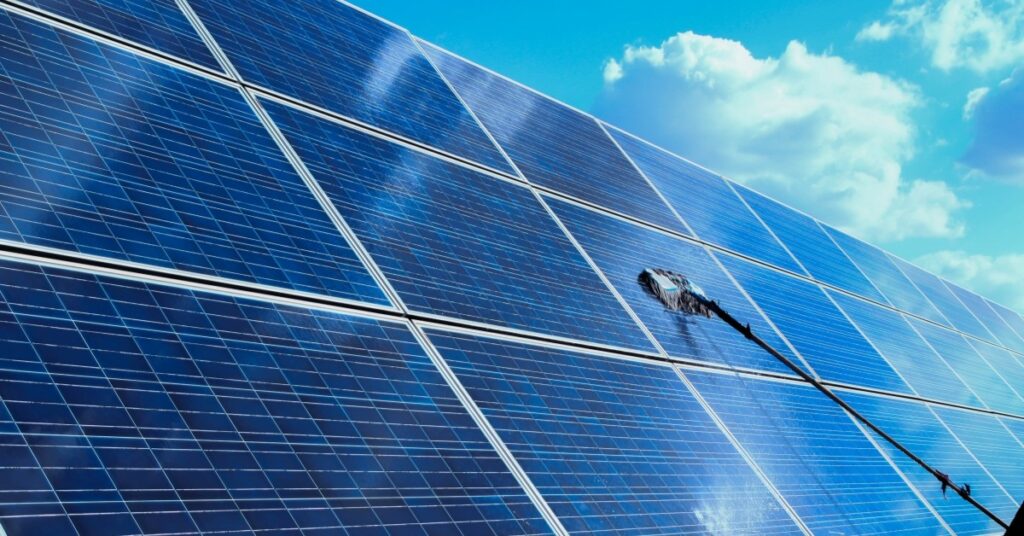As a solar installer in California, Energy Service Partners has encountered plenty of questions when it comes to solar panel installation and home renewable energy systems. If you’re a solar sales rep, you’ve likely been asked many of these as well. Homeowners should be knowledgeable and comfortable about how safe a solar energy system is and what the potential risks or drawbacks are of installing one. Everyone wants to be sure that they’re getting a safe, effective home improvement that will power their property for years to come.
You may have also had potential customers bring up some common solar myths — things they’ve heard from others or read on the internet concerning solar power. While there might be some credence to a few of these solar myths, we’re here to dispel the most common ones so that you can assure any homeowner you talk to that solar is a great choice basically all around.
We’ll cover five solar myths in Part 1 of our series — be sure to come back for Part 2!
1. I Should Wait For More Efficient Solar Technology
Solar power systems have evolved over the years, but the truth is, the core technology is the same as it was more than 60 years ago. There have been improvements and changes, to be sure, but solar has become only moderately more efficient. Homeowners can wait to install panels, but there isn’t much upside to putting it off. Once in place, the panels will work for years to come, so it makes more sense to begin enjoying cleaner, efficient power now rather than later.
2. Solar Won’t Work in Cloudy or Foggy Climates
Many homeowners might believe that solar only works in bright, sunny environments. While more sunshine is always a good thing, solar panels still work just fine in cloudy or foggy climates. In fact, Germany, which has a fairly cool and cloudy climate, leads the world in residential solar power. Panels on a roof in a cloudy area can produce nearly as much power year-round as panels on a roof in a brighter, sunnier climate – it’s all about averages.
3. The Solar Can Burn Down My House
While there have been some horror stories, it’s far from common that solar presents any type of danger. You’re more likely to have your toaster catch on fire than the solar panels (if you use a good installer – check their qualifications!). But, whenever you start talking about energy storage and power sources, some people become wary. As a sales rep, you might encounter a customer who’s worried about the system starting a fire, or batteries leaking and causing damage. To avoid this concern, you can talk to your customer about how many solar arrays are operational nationwide with no issues, and how most modern solar panel systems are tied into the local electrical grid, which means there’s no need for batteries.
4. Solar Panels Require Cleaning, Maintenance, and Upkeep
While solar panels aren’t truly a “set it and forget” type of installation, they require little to no maintenance over the course of their lifespan. The rain will do a decent job of cleaning panels, and if the homeowner really wants to, they can hose the panels off once or twice a year. Should the panels get damaged by falling debris, such as a tree branch, maintenance may be required. But in most cases, the panels are virtually upkeep-free.
5. Solar Panels Will Damage My Roof
Everyone knows that solar panels are installed on the roof, but some homeowners might worry about how the panels attach, or if the array will affect the condition of their roof. The truth is, with proper installation from an experienced team such as ESP, the panels and racking system will be placed safely and securely with preventative measures in place to stop potential leaks, with a long-term guarantee of workmanship. Panels can also protect the roof from damage (sunlight being the biggest culprit when it comes to beating up your shingles) and many arrays are designed to withstand hurricane-force winds. If a customer is worried about the condition of their roof before installation begins, you can talk to them about what updates and repairs they can make before the solar panels are put in place, which may be eligible for the 26% tax credit if rolled into the job.
Learn More Today
At ESP, we love partnering with solar sales reps who want to provide their customers with the very best in panel design, planning, and installation. These solar myths are just a few you might encounter out in the field, and by being equipped with the right answers, you can put a homeowner’s mind at ease and hopefully help them move forward with panel installation. We’ll cover five more common solar myths in our next post, but if you have any questions about our products or services, please feel free to call or contact us online at any time.
